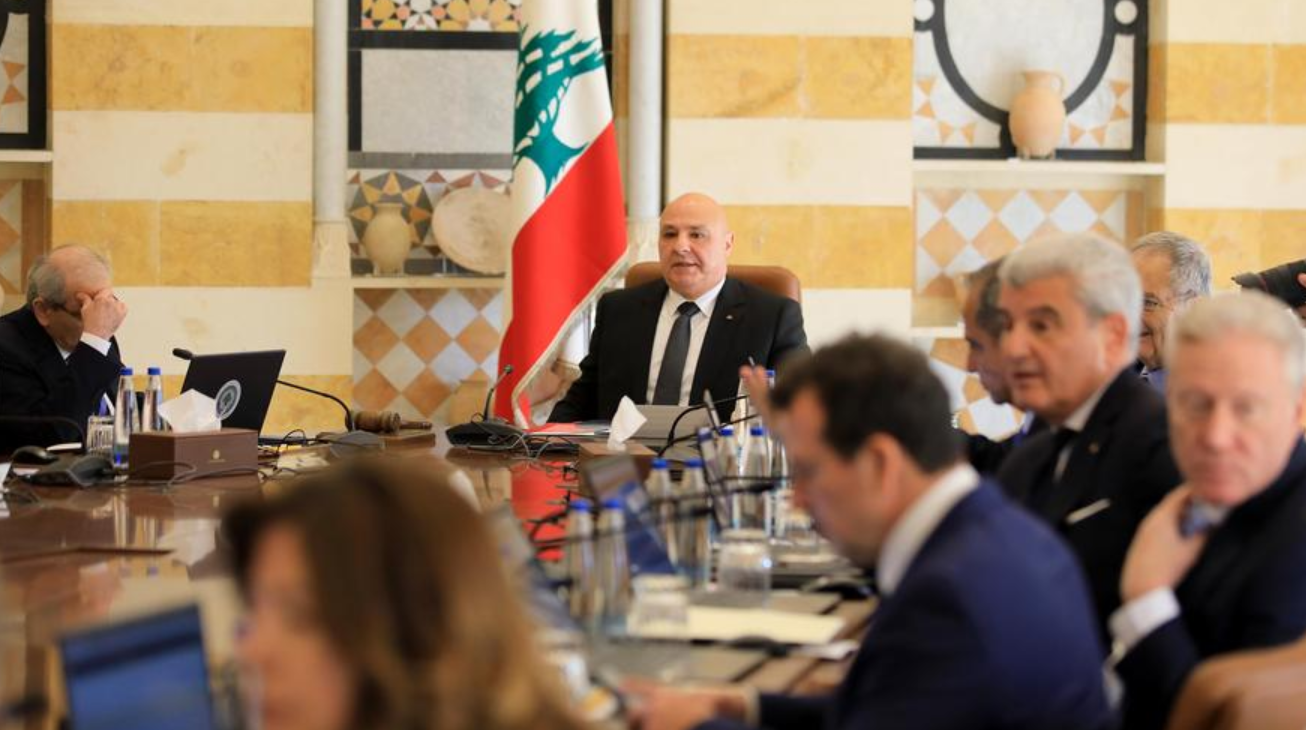
Lebanon's cabinet on Friday approved an army plan to disarm
Hezbollah and place all weapons under state control.
Five Hezbollah and
Amal ministers walked out in protest, and Hezbollah supporters called
for mass demonstrations.
Why is Lebanon moving to disarm Hezbollah? How are divergent sides reacting? What could happen next?
Why disarm Hezbollah?
Why is Lebanon moving to disarm Hezbollah? How are divergent sides reacting? What could happen next?
Why disarm Hezbollah?
A Shiite political and military group in Lebanon, Hezbollah emerged in the aftermath of the Israeli invasion of the country in 1982.
After the
outbreak of the latest round of conflict between Israel and Palestine in
October 2023, Hezbollah engaged in hostilities with Israel in support
of Hamas.
A ceasefire deal was reached in November 2024, but Israel
maintained troops at five positions in southern Lebanon and continued
airstrikes against what it claimed were Hezbollah targets.
Since early
this year, Washington has intensified pressure on Beirut to dismantle
Hezbollah's armed wing within a timetable, warning Lebanon that failure
to comply would mean continued Israeli military operations, the risk of
escalation, and the loss of much-needed foreign aid.
In June, US envoy Tom Barrack visited Lebanon, delivering a US proposal over the full disarmament of Hezbollah.
In June, US envoy Tom Barrack visited Lebanon, delivering a US proposal over the full disarmament of Hezbollah.
In return, Washington would press
Israel to halt its strikes and withdraw troops in a phased manner, while
eventually mobilizing foreign funds for Lebanon's reconstruction.
Adnan
Bourji, director of the Lebanese National Center for Studies, said the
United States and Israel share the same goal of weakening Hezbollah,
which they see as an ally of Iran and a key player in the anti-US and
anti-Israel axis in the region.
How are different sides reacting?
How are different sides reacting?
The Lebanese government has agreed to seize Hezbollah's weapons, but stressed that Israel must first stop its violations of Lebanese sovereignty and withdraw its troops.
On July 31, Lebanese President
Joseph Aoun announced that the government would require Hezbollah and
other armed groups to hand over weapons to state control.
On August 5,
Prime Minister Nawaf Salam said that the army had been tasked to prepare
a plan by the end of August to ensure all weapons would come under
state authority by year-end.
Hezbollah has firmly rejected disarmament, insisting its weapons remain essential to Lebanon's sovereignty and defense. Hezbollah leader Sheikh Naim Qassem called it "an illegitimate decision made under American and Israeli dictates."
Hezbollah has firmly rejected disarmament, insisting its weapons remain essential to Lebanon's sovereignty and defense. Hezbollah leader Sheikh Naim Qassem called it "an illegitimate decision made under American and Israeli dictates."
"The resistance will not surrender its weapons while aggression
continues and occupation persists, and it will fight if necessary to
confront this American-Israeli project, no matter the cost," Qassem
warned.
Israel has hailed Lebanon's move. In a statement on August 25, Prime Minister Benjamin Netanyahu's office said it will consider "reciprocal measures," including a phased reduction of its military presence in the south, coordinated with a US-led security mechanism, if the Lebanese army enforces disarmament.
Israel has hailed Lebanon's move. In a statement on August 25, Prime Minister Benjamin Netanyahu's office said it will consider "reciprocal measures," including a phased reduction of its military presence in the south, coordinated with a US-led security mechanism, if the Lebanese army enforces disarmament.
A senior Hezbollah official
warned that the group would mobilize supporters if the government moves
to solidify the disarmament plan.
What's next?
After a cabinet meeting on Friday, Lebanese Information Minister Paul Morcos said that ministers approved the army's proposal but decided to keep details confidential.
What's next?
After a cabinet meeting on Friday, Lebanese Information Minister Paul Morcos said that ministers approved the army's proposal but decided to keep details confidential.
Morcos added the army would begin implementing the
plan within its available logistical, financial and human resources,
and would submit monthly progress reports to the cabinet.
Analysts doubt
the disarmament will proceed smoothly.
Lebanese political analyst
Youssef Diab said Hezbollah sees disarmament as stripping the group of
its political power, hence a matter of survival.
US pressure could push the Lebanese government into a confrontation with Hezbollah, warned analysts, noting that a hardline approach could deepen political divisions and provoke anger among the Shiite community, while the Lebanese army lacks the capacity to forcibly disarm the group.
US pressure could push the Lebanese government into a confrontation with Hezbollah, warned analysts, noting that a hardline approach could deepen political divisions and provoke anger among the Shiite community, while the Lebanese army lacks the capacity to forcibly disarm the group.
The
National, a United Arab Emirates English-language daily, quoted a
Lebanese political source as saying that senior army officers appear
reluctant to set a timetable for disarmament, given Lebanon's internal
divisions over the issue and the lack of a clear Israeli commitment to
withdraw troops and halt violations.
Some analysts said that many in
southern Lebanon do not see the United States as an honest broker or one
that could work in Lebanon's interests as they have witnessed the US support for Israel in its war in the Gaza Strip, and the occupation of
Lebanese territories.












